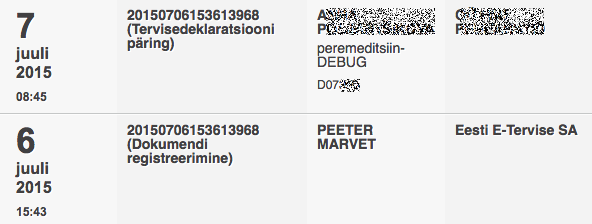

The course will consist of a number of seminars given by invited lecturers. Lecturers will be both from the University and from the industry companies. They will present the research results along with the practice best experiences and examples of the application of the blockchain and smart contract technology.
Kick-off seminar:
3.October, 10:15-12:00: Smart contracts and identity on blockchain – using e-Residency in Ethereum, Speaker: Thomas Bertani, Oraclize.itRegular seminars (Tuesdays 18.15-20.00, Liivi 2-404, Tartu):
25.October: Introduction to Smart Contracts and Applications
Speaker: Kristo Käärmann, TransferWise1.November: Blockchain as an Enabling Technology for Businesses
Speaker: Frederik Payman Milani, University of Tartu8.November: Lightweight BPMN engine on ethereum
Speaker: Luciano Garcia Banuelos, University of Tartu15.November: Cryptographic Foundations of Bitcoin
Speaker: Michal Zajac, University of Tartu29.November: Introduction to KSI blockchain
Speaker: Andreas Sisask, Guardtime6.December: Creation of Smart-Contracting Collaborations for Decentralized Autonomous Organizations
Speaker: Alex Norta, Tallinn Technical University
Links:
https://courses.cs.ut.ee/2016/blockchain/fall/Main/Seminars

